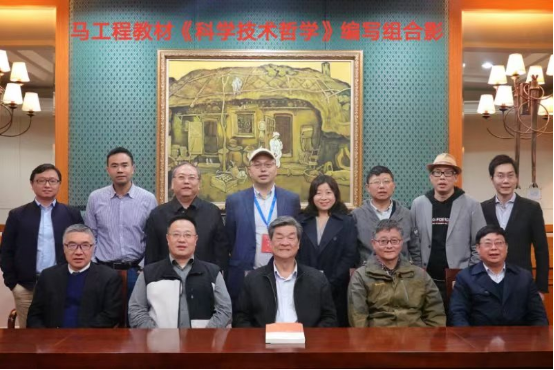
Wan Xiaolong, Leading Expert of the National Marxism Project in "Philosophy of Science and Technology";Leading Expert of the National Social Science Foundation Major Project;ExternalPeerReviewerfor the National Social ScienceFund of China, National Postdoctoral Programs, Ministry of Education Humanities and Social Sciences Foundation,Ministry of Human Resources and Social Security, etc.; Vice Chairman of the Philosophy of Science Committee, Chinese Society for Dialectics of Nature (CSDN); Vice Chairman of the Philosophy of Physics Committee, CSDN; Chair of the Philosophy of Physics Section, 2018 World Congress of Philosophy; Executive Council Memberof theChinese Association for Logic; PresidentofHubei Association for Logic;andLeading Talent of Sichuan Emei Plan. Professor at theAdvancedInstituteofHumanities and Social Sciences,UESTC; DirectorofCenter for Philosophy, Logic and History of Science and Technology.
Research Focus:Philosophy of Physics,andPhilosophical Logic.Wanhas presided over 7 national-level research projects (including 2 major projects and 1 key project), published 3 monographs, and authored nearly 100 academic papers in journals includingPhilosophical Research,Philosophical Trends,Studies in Dialectics of Nature,Dialectics of Nature Communications,Studies in Philosophy of Science and Technology, andPhilosophical Analysis.
Major Academic Contribution:The STRF theory, originating in 2012, was conceptually formulated in 2014, achieved critical breakthroughs by 2019, and reached substantial completion in 2022. This work establishes a more concise paradigm at the logical foundations of non-classical information and physics, with findings published asasingle-authored paper "Four Equivalent Relations between MCP and CP and Its Implication in Quantum and Information Theory".
The pioneering STRF theory creates a more concise paradigm distinct from the current academic mainstream at the foundation of non-classical information technology:
Rigorous science today must be reliable in three aspects:mathematical precision,experimental verifiability, and philosophical logic. Philosophical logic, in turn, must be reliable in three dimensions: syntax, semantics, and metaphysics. While the Modal Causal Propositional logic (MCP) attempts to provide a strict model for quantum information theory, it faces significant difficulties in syntax, semantics, and metaphysics. Based on the minimum guidance definition of hidden variables, four equivalences between MCP and Classical Propositional logic (CP) are established: MCP is CP incorporating strict syntactic hidden variables; modal formulas are classificatory clusters of CP formulas;andpossible worlds are CP formulas serving as valuation backgrounds! This provides, in principle, a rigorous and unified foundation for philosophical logic.